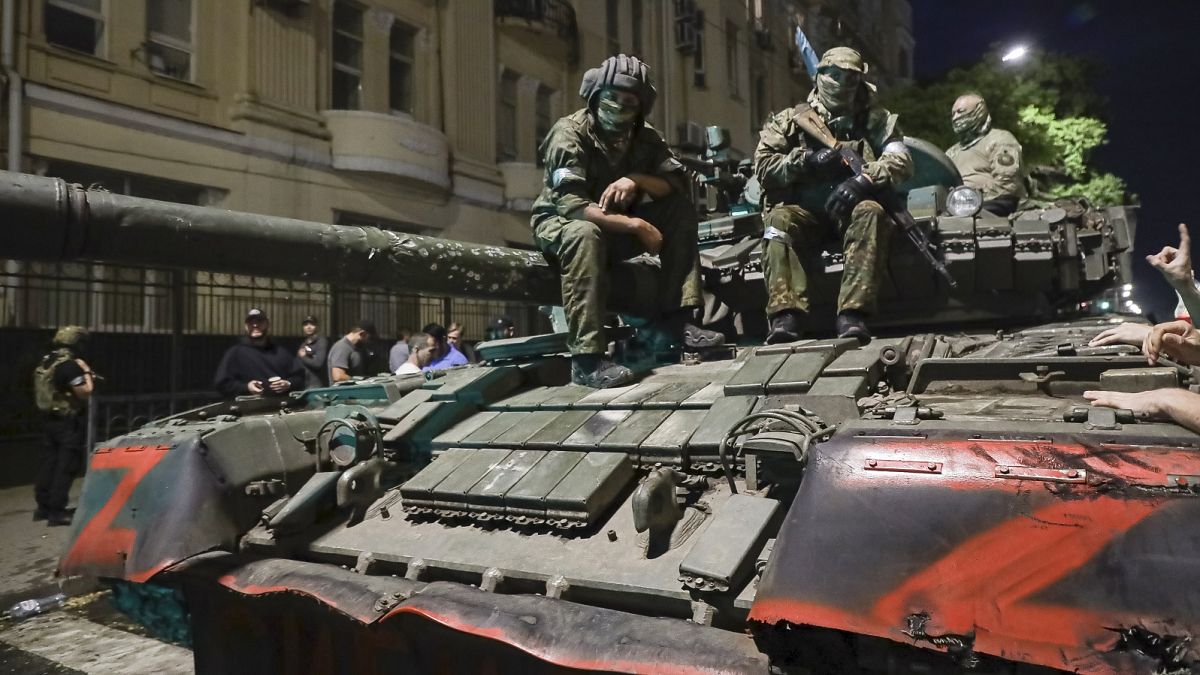Minsk has previously been accused of weaponising its border with EU member states, while Poland has said the EU should pay to strengthen security at the border.
European Union countries bordering Belarus on Thursday asked for more solidarity from the bloc and NATO over the presence of "serial killers" from the Wagner mercenary group and the risk of "infiltration" into their countries.
"We keep a very wary eye on everything that occurs in Belarus with [Wagner chief Yevgeny] Prigozhin there and an unknown number of very trained and skilled fighters who presumably will be joining him," Latvian Prime Minister Arturs Krišjānis Kariņš told reporters upon arrival at a two-day summit of EU leaders in Brussels.
"That does potentially pose a threat. The threat would probably not be a frontal military threat, but the threat of attempted infiltration into Europe for unknown purposes. So that means we need to heighten our border awareness and make sure that we can control that," he added.
Minsk has previously been accused of weaponising its border with EU member states by deliberately bringing thousands of mostly Middle Eastern foreign migrants to the border in retaliation for EU sanctions against Minsk over fraudulent elections and the subsequent violent repression of pro-democracy demonstrations.
Poland, which also borders Belarus, has meanwhile said that the EU should pay to strengthen security at the border.
"European solidarity means supporting countries threatened with destabilisation," Deputy Foreign Minister Pawel Jablonski said on Thursday on public radio.
Belarusian President Alexander Lukashenko confirmed on Tuesday that Prigozhin had indeed arrived in his country and said that a former military base had been made available for any Wagner fighters who wished to join him.
Prigozhin's exile in Belarus is reportedly part of a deal the Wagner chief has struck with Russian President Vladimir Putin after leading a mutiny over the weekend that saw him and some of his fighters drive about 200kms south of Moscow, killing over a dozen Russian soldiers in the process.
The exile would reportedly see them avoid criminal charges, although the Russian Defence Ministry has also called on Wagner fighters to sign up with them and seized some of their military equipment.
Vilnius is also "extremely concerned about the developments in Belarus," Gitanas Nausėda, the Lithuanian president said.
"The fighter group or these serial killers, I call them like this, they could be and emerge in Belarus at any moment. And nobody knows when they could turn against us," he added.
He said this should spur NATO to "take bold decisions on the strengthening of (its) eastern flank."
Leaders from the 31 members of the transatlantic military alliance will gather in the Lithuanian capital on 11-12 July to discuss the ongoing transformation of NATO and unveil new regional plans to bolster cooperation among members and defences against new threats.
